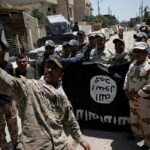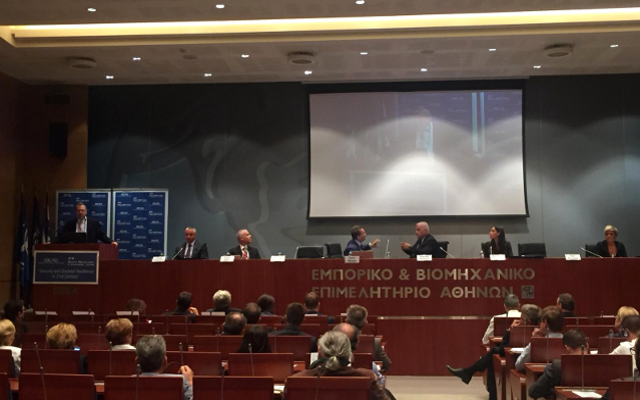(Athens, Thursday, 27th September 2018) – The European Jewish Congress’ Security and Crisis Centre (SACC) held a high-level conference on crisis management titled “Security and Societal Resilience in the 21st Century: New Challenges” with senior Greek officials, including diplomats, members of parliament and civil protection authorities at the Athens Chamber of Commerce and Industry, in order to study and analyse the dramatic consequences of the recent devastating fires which ravaged Greece’s Attica Region.
The conference, hosted by the Research Institute for European and American Studies (RIEAS), held open and important discussions about first response, crisis communications, leadership and the sharing of best practices.
“Our goal is to share our experience, knowledge and best practices with the wider world who are facing immense crises, like the recent devastating fires in Greece,” said EJC President Dr. Moshe Kantor. “We have also come to learn and the lessons learned from Greece will be extremely valuable in order to combat crises and emergency situations that arise around the world.”
“We hope that by working with Greek officials and experts, together we will be able to ensure the best possible responses are shared between us and beyond that can be put to good use in the saving of countless lives.”
The conference was attended by international experts and academics in the field of crisis management, as well as by senior Greek officials and representatives from the country’s police, army, civil protection and intelligence services.
‘The exchange of information is key priority regarding safety and resilience,” said Ioannis Nomikos, the Director of the RIEAS. “We need to create trust and think collectively as a group. Greeks need to train themselves and provide better future to their children. Political parties and society at large cannot wait.”
The SACC is a Brussels-based highly qualified team of crisis management experts which assists countries and communities prepare and face crises and emergencies utilising the latest technologies, and the necessary means and amenities for supporting a large-scale community crisis event like a terror attack or a natural disaster.
“At SACC, we realised that we can make major contributions towards sharing information, experience and best practices with the wider community,” Ophir Revach, CEO of SACC said. “We have already started advising many governments, emergency services and civil society organisations, and our goal is to create networks of support across the continent and beyond so the impact of these crises is lessened. Coordination is the key to create a greater impact on the ground and thus save a larger number of lives.”






